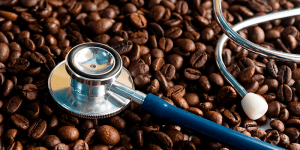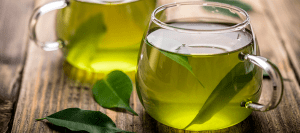El consumo de café y el riesgo de cáncer de próstata: el Estudio de Cohorte Ohsaki
27-04-2017
Se adelantó un estudio observacional con el objetivo de explorar la relación entre el consumo de café y el riesgo de cáncer de próstata. Se escogió un diseño de cohorte prospectivo en la ciudad Ohsaki, Japón, incluyendo 18853 hombres entre 40-79 años. El consumo de café fue evaluado empleando un cuestionario validado auto-diligenciado. Se empleó un modelo de regresión de riesgos proporcionales de Cox para estimar las razones de riesgo con un nivel de significancia de 95%.También se incluyeron en el análisis variables confusoras como edad, IMC, tabaquismo, consumo de alcohol y estadio de cáncer de próstata, mediante estratificación. Durante 11 años de seguimiento (del 1 de enero de 1995 al 31 de diciembre de 2005), 318 casos incidentes de cáncer de próstata fueron detectados. Se evidenció una asociación inversa y significativa entre el consumo de café y el riesgo de cáncer de próstata. Comparado con no consumo de café, la razón de riesgos ajustada fue 0.81 (IC 95%: 0.61-1.07) para los consumidores ocasionales de café , 0.73 (IC 95%: 0.53-1.00) para los consumidores de 1-2 tazas/día, y 0.63 (IC 95%: 0.39-1.00) para consumidores de >=3 tazas por día, respectivamente (0.02). En conclusión, este estudio de cohorte evidenció una relación inversa entre el consumo de café y la incidencia de cáncer de próstata.
Li Q, Kakizaki M, Sugawara Y, Tomata Y, Watanabe T, Nishino Y, Tsuji I. Coffee consumption and the risk of prostate cancer: the Ohsaki Cohort Study. Br J Cancer 2013, Jun 11;108(11):2381-9
Arab L (2011) Should men drink more coffee to delay progression of prostate cancer? Nutr Cancer 63(8): 1161–1162. Cardenas C, Quesada AR, Medina MA (2011) Anti-angiogenic and anti-inflammatory properties of kahweol, a coffee diterpene. PLoS One 6(8): e23407.
Arab L (2011) Should men drink more coffee to delay progression of prostate cancer? Nutr Cancer 63(8): 1161–1162. Cardenas C, Quesada AR, Medina MA (2011) Anti-angiogenic and anti-inflammatory properties of kahweol, a coffee diterpene. PLoS One 6(8): e23407.
Cavin C, Holzhaeuser D, Scharf G, Constable A, Huber WW, Schilter B (2002) Cafestol and kahweol, two coffee specific diterpenes with anticarcinogenic activity. Food Chem Toxicol 40(8): 1155–1163. Curado MP, Edwards B, Shin HR, Storm H, Ferlay J, Heanue M, Boyle P (2007) Cancer Incidence in Five Continents Vol. IXIARC Scientific Publications: Lyon, (No. 160). Ellison LF (2000) Tea and other beverage consumption and prostate cancer risk: a Canadian retrospective cohort study. Eur J Cancer Prev 9(2): 125–130. Gomez-Ruiz JA, Leake DS, Ames JM (2007) In vitro antioxidant activity of coffee compounds and their metabolites. J Agric Food Chem 55(17): 6962–6969. Hashimoto T, He Z, Ma WY, Schmid PC, Bode AM, Yang CS, Dong Z (2004) Caffeine inhibits cell proliferation by G0/G1 phase arrest in JB6 cells. Cancer Res 64(9): 3344–3349. Hsieh CC, Signorello LB, Lipworth L, Lagiou P, Mantzoros CS, Trichopoulos D (1998) Predictors of sex hormone levels among the elderly: a study in Greece. J Clin Epidemiol 51(10): 837–841. Hsing AW, McLaughlin JK, Schuman LM, Bjelke E, Gridley G, Wacholder S, Chien HT, Blot WJ (1990) Diet, tobacco use, and fatal prostate cancer: results from the Lutheran Brotherhood Cohort Study. Cancer Res 50(21): 6836–6840. Jacobsen BK, Bjelke E, Kvale G, Heuch I (1986) Coffee drinking, mortality, and cancer incidence: results from a Norwegian prospective study. J Natl Cancer Inst 76(5): 823–831. Japan Ministry of Health Labour and Welfare (2010) Annual Report of National Health and Nutrition Survey. http://www.mhlw.go.jp/bunya/ kenkou/kenkou_eiyou_chousa.html. (In Japanese; accessed 3 September 2012). Jemal A, Bray F, Center MM, Ferlay J, Ward E, Forman D (2011) Global cancer statistics. CA Cancer J Clin 61(2): 69–90. Kuriyama S, Shimazu T, Ohmori K, Kikuchi N, Nakaya N, Nishino Y, Tsubono Y, Tsuji I (2006) Green tea consumption and mortality due to cardiovascular disease, cancer, and all causes in Japan: the Ohsaki study. JAMA 296(10): 1255–1265. Le Marchand L, Kolonel LN, Wilkens LR, Myers BC, Hirohata T (1994) Animal fat consumption and prostate cancer: a prospective study in Hawaii. Epidemiology 5(3): 276–282. Li Q, Kakizaki M, Kuriyama S, Sone T, Yan H, Nakaya N, Mastuda Ohmori K, Tsuji I (2008) Green tea consumption and lung cancer risk: the Ohsaki study. Br J Cancer 99(7): 1179–1184. Maki T, Pham NM, Yoshida D, Yin G, Ohnaka K, Takayanagi R, Kono S (2010) The relationship of coffee and green tea consumption with highsensitivity C-reactive protein in Japanese men and women. Clin Chem Lab Med 48(6): 849–854. Matsuda T, Marugame T, Kamo K, Katanoda K, Ajiki W, Sobue T. Japan Cancer Surveillance Research Group (2012) Cancer incidence and incidence rates in Japan in 2006: based on data from 15 population-base cancer registries in the monitoring of cancer incidence in Japan (MCIJ) project. Jpn J Clin Oncol 42(2): 139–147. Naganuma T, Kuriyama S, Kakizaki M, Sone T, Nakaya N, Ohmori-Matsuda K, Nishino Y, Fukao A, Tsuji I (2008) Coffee consumption and the risk of oral, pharyngeal, and esophageal cancers in Japan: the Miyagi Cohort Study. Am J Epidemiol 168(12): 1425–1432. Nilsson LM, Johansson I, Lenner P, Lindahl B, Van Guelpen B (2010) Consumption of filtered and boiled coffee and the risk of incident cancer: a prospective cohort study. Cancer Causes Control 21(10): 1533–1544. Nomura A, Heilbrun LK, Stemmermann GN (1986) Prospective study of coffee consumption and the risk of cancer. J Natl Cancer Inst 76(4): 587–590. Park CH, Myung SK, Kim TY, Seo HG, Jeon YJ, Kim Y (2010) Coffee consumption and risk of prostate cancer: a meta-analysis of
epidemiological studies. BJU Int 106(6): 762–769. Phillips RL, Snowdon DA (1983) Association of meat and coffee use with cancers of the large bowel, breast, and prostate among Seventh-Day Adventists: preliminary results. Cancer Res 43(5 Suppl): 2403s–2408s. Qin LQ, Xu JY, Wang PY, Kaneko T, Hoshi K, Sato A (2004) Milk consumption is a risk factor for prostate cancer: meta-analysis of casecontrol studies. Nutr Cancer 48(1): 22–27. Qin LQ, Xu JY, Wang PY, Tong J, Hoshi K (2007) Milk consumption is a risk factor for prostate cancer in Western countries: evidence from cohort studies. Asia Pac J Clin Nutr 16(3): 467–476. Severson RK, Nomura AM, Grove JS, Stemmermann GN (1989) A prospective study of demographics, diet, and prostate cancer among men of Japanese ancestry in Hawaii. Cancer Res 49(7): 1857–1860. Sfanos KS, De Marzo AM (2012) Prostate cancer and inflammation: the evidence. Histopathology 60(1): 199–215. Shafique K, McLoone P, Qureshi K, Leung H, Hart C, Morrison D (2012) Coffee consumption and prostate cancer risk: further evidence for inverse relationship. Nutr J 11(1): 42. Shimazu T, Tsubono Y, Kuriyama S, Ohmori K, Koizumi Y, Nishino Y, Shibuya D, Tsuji I (2005) Coffee consumption and the risk of primary liver cancer: pooled analysis of two prospective studies in Japan. Int J Cancer 116(1): 150–154. Svartberg J, Midtby M, Bonaa KH, Sundsfjord J, Joakimsen RM, Jorde R (2003) The associations of age, lifestyle factors and chronic disease with testosterone in men: the Tromso Study. Eur J Endocrinol 149(2): 145–152. Svilaas A, Sakhi AK, Andersen LF, Svilaas T, Strom EC, Jacobs Jr. DR, Ose L, Blomhoff R (2004) Intakes of antioxidants in coffee, wine, and vegetables are correlated with plasma carotenoids in humans. J Nutr 134(3): 562–567. Tabata N, Ohno Y, Matsui R, Sugiyama H, Ito Y, Tsukuma H, Oshima A (2008) Partial cancer prevalence in Japan up to 2020: estimates based on incidence and survival data from population-based cancer registries. Jpn J Clin Oncol 38(2): 146–157. Takano A, Okuno Y (1997) In: Cancer incidence in five continents, Parkin DM, Whelan SL, Ferlay J, Raymond L, Young J (eds.) Vol. 7: 386–389. IARC Sci
Publ: Miyagi Prefecture, Japan. Tsuji I, Nishino Y, Ohkubo T, Kuwahara A, Ogawa K, Watanabe Y, Tsubono Y, Bando T, Kanemura S, Izumi Y, Sasaki A, Fukao A, Nishikori M,Hisamichi S (1998) A prospective cohort study on National Health Insurance beneficiaries in Ohsaki, Miyagi Prefecture, Japan: study design, profiles of the subjects and medical cost during the first year. J Epidemiol 8(5): 258–263. Watanabe I, Kuriyama S, Kakizaki M, Sone T, Ohmori-Matsuda K, Nakaya N, Hozawa A, Tsuji I (2009) Green tea and death from pneumonia in Japan: the Ohsaki cohort study. Am J Clin Nutr 90(3): 672–679. Wilson KM, Kasperzyk JL, Rider JR, Kenfield S, van Dam RM, Stampfer MJ, Giovannucci E, Mucci LA (2011) Coffee consumption and prostate cancer risk and progression in the Health Professionals Follow-up Study. J Natl Cancer Inst 103(11): 876–884. World Health Organization (2008) World cancer Report. International Agency for Research on Cancer: Lyon. Yu X, Bao Z, Zou J, Dong J (2011) Coffee consumption and risk of cancers: a meta-analysis of cohort studies. BMC Cancer 11: 96.















